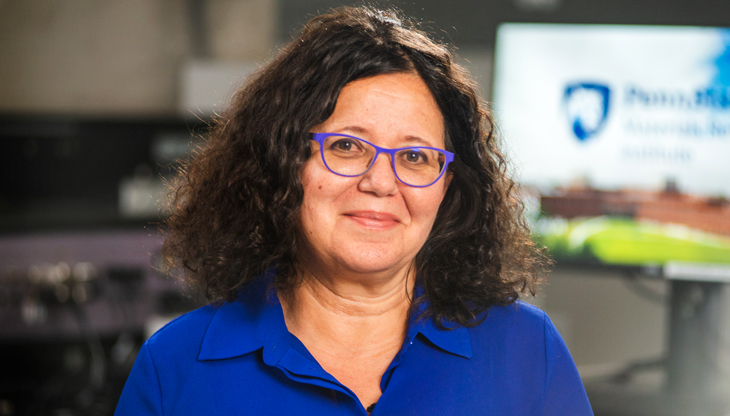
Zoubeida Ounaies, Penn State University
Abstract: Keynote Lecture: Field-Assisted Processing of Polymer Composites: Nature-Inspired Design for Living Multifunctional Materials. Nature excels at creating multifunctional materials with hierarchical structures that seamlessly integrate properties like strength, flexibility, sensing, and energy efficiency. Inspired by these capabilities, our research focuses on leveraging field-assisted processing techniques to develop polymer composites exhibiting hierarchical structures, with a goal of imparting life-like multifunctionality. By applying external fields—electric, magnetic, or mechanical—we strategically manipulate fillers within polymer matrices to create tailored microstructures. These engineered materials mimic nature's design principles, enabling functionalities such as energy harvesting, adaptive actuation, and sensing. This talk will explore the underlying principles of field-assisted processing, showcase key examples from our work, and sample notable advancements from current literature to highlight the potential of these bio-inspired materials in advancing smart systems and sustainable technologies.
Bio: Zoubeida Ounaies is professor of Mechanical Engineering and Materials Science and Engineering, director of the Convergence Center for Living Multifunctional Material Systems (LiMC2) and associate director of the Materials Research Institute at the Pennsylvania State University. She joined Penn State in January 2011 as an associate professor with the Dorothy Quiggle Career Development Professorship in Mechanical Engineering. Her research focuses on the design and development of responsive polymer-based materials with unique combinations of mechanical, electrical, magnetic, and coupled properties. At Penn State, Zoubeida established the Electroactive Materials Characterization Laboratory (EMCLab) where she and her students focus on advancing the application of responsive materials in energy storage, energy conversion, and energy harvesting. Zoubeida is a fellow of the American Society of Mechanical Engineers (ASME), a fellow of the international society for optics and photonics (SPIE), and was recently awarded the Penn State Outstanding International Research Award (March 2024).